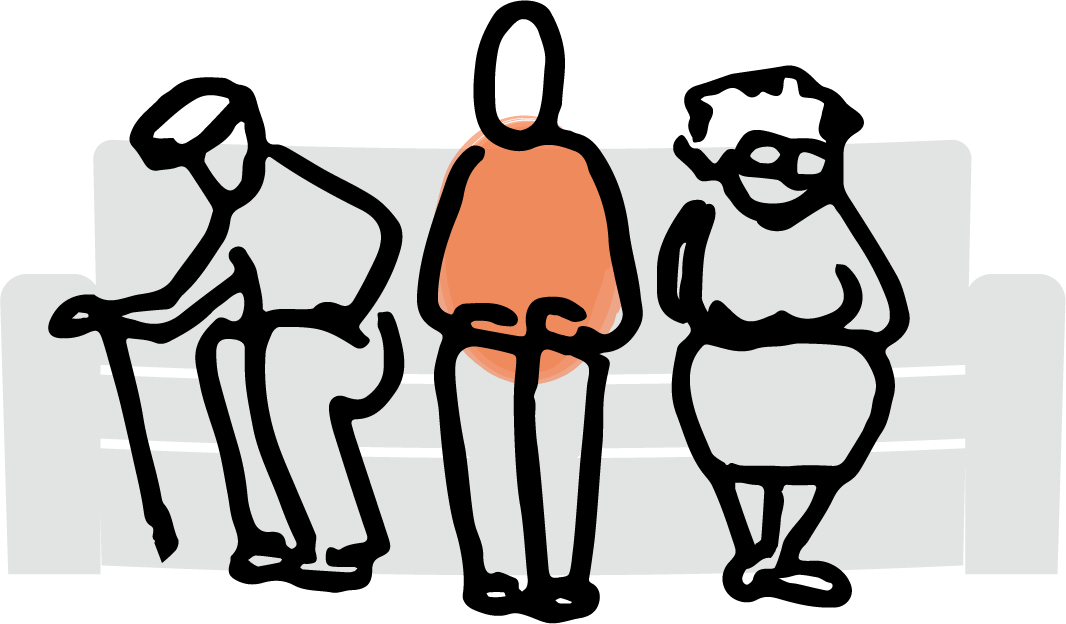“How Do I Get My Life Back?”
One step you can take today.
“How do I get my life back?”
It’s a big question — and the challenge everyone who cares for an older parent faces sooner or later.
So I asked someone who finds practical answers to big questions about helping aging parents — author and care coach Diane Dagefoerde.
The key, she says, is knowing the difference between being a caregiver and a care manager.
Here, in Diane’s own words, is what you need to know:
What’s the difference between a caregiver and a care manager?
The difference is what you are doing. Caregiving is associated with hands-on caregiving. Being a care manager is associated with organizing care.
For example, a caregiver takes mom on a daily walk. A care manager makes sure that daily walks happen. A caregiver drives dad to his doctor’s appointment. A care manager makes sure the follow-up appointment is scheduled, dad’s prescription gets filled, and the bill gets paid.
But at first, most of us don’t make those distinctions. When you realize that mom or dad is going to need a lot more help, you just start doing what needs to be done. All you know is that they need help, and you’re it.
This is the classic “Oh, sh#t! Now what?” moment. And when it happens, we feel overwhelmed. Especially those of us who like to control things. Because it’s a lot. You’re on call all the time for your parent and the rest of your family. And you’re trying to do it all.
The problem is that there’s only more to do. And new problems to solve. And it is not sustainable.
How does thinking like a care manager help?
It helps you get your life back. The always-on nature of caregiving is relentless. It consumes your time and your emotions.
The only way not to drown yourself in a sea of caregiving tasks is to learn how to delegate those tasks.
“The only way not to drown yourself in a sea of caregiving tasks is to learn how to delegate.”
Learning to delegate is essential when you don’t live near your parent. But even if you live on the same block, you need to start thinking like a care manager to create the space to get your life back.
Thinking like a care manager — finding help for the mundane and every-day tasks — gives you more time to care for yourself and your relationships. And it allows you to save your emotional energy for dealing with the hard stuff.
Seeing yourself as a care manager also gives you a healthy perspective on your role. You are not parenting your parents. That’s the wrong way to frame it. Your parents are not your kids. You are helping manage their care.
Helping your parents is emotional. There’s no way around that. But the care manager role teaches you to think objectively and practically. And you’ll need to do both as mom’s needs change.
When is the best time to make this transition?
There are a few different signs you’re ready to go from caregiver to care manager.
One sign is when your family starts to talk about their concerns about mom or dad. Often this happens during or after holidays or family get-togethers. The key is to follow up with more conversations. Start building a support network. You’re going to need it.
Another red flag is when you start feeling resentment towards your siblings or other family members because you need help, and they’re not doing squat.
Another is when you finally realize there aren’t enough hours in the day for you to juggle helping mom, your family, and work. You can’t handle all this anymore. Hitting that wall is a clear sign you’re ready.
What is one step you can take today?
When you face the fact that you can’t do it all by yourself, that’s the moment you need to start making a list.
Delegation starts with documentation. The moment you begin documenting what you do for mom and how you do it, you’re a care manager.
“The moment you begin documenting what you do for mom, you’re a care manager.”
Keep things simple. Take your parent’s medical conditions, for example. Begin by listing all of them. Then list their doctors, the conditions they treat, and the meds they prescribe. List the doctor’s contact info. List the pharmacy where each med is filled. And list any symptoms to watch out for.
This is information you’d want at your fingertips in an emergency anyway, so it’s a good place to start. Not just for your parent’s health and safety. But for any family member, friend or hired caregiver you find to cover for you for a night or a weekend.
You can repeat the process for any number of tasks, from transportation and grocery shopping to medical and dental appointments.
Want to give yourself a break as a caregiver? Put on your care manager hat and give someone the chance and the information they need to help.
Thanks for caring,

P.S. Join us for a special My Aging Parents live event!
Oh Sh#t! Now What?
How to Manage Care for Your Aging Parent
with Diane Dagefoerde (and me)
Wednesday, June 12 @ 1pm ET
Register today. (It’s free!)
New to My Aging Parents?
Join us for practical tips and strategies to help you meet the challenges of helping your aging parents. Hand picked and delivered by email biweekly.
No charge. No spam. Unsubscribe anytime.
